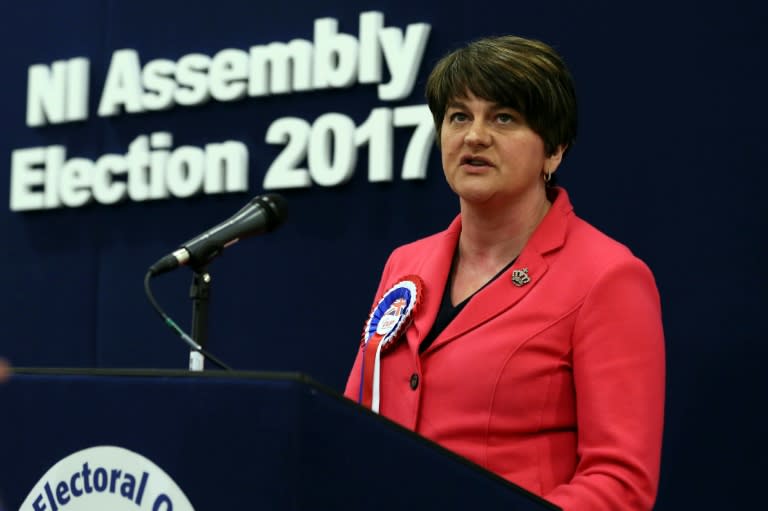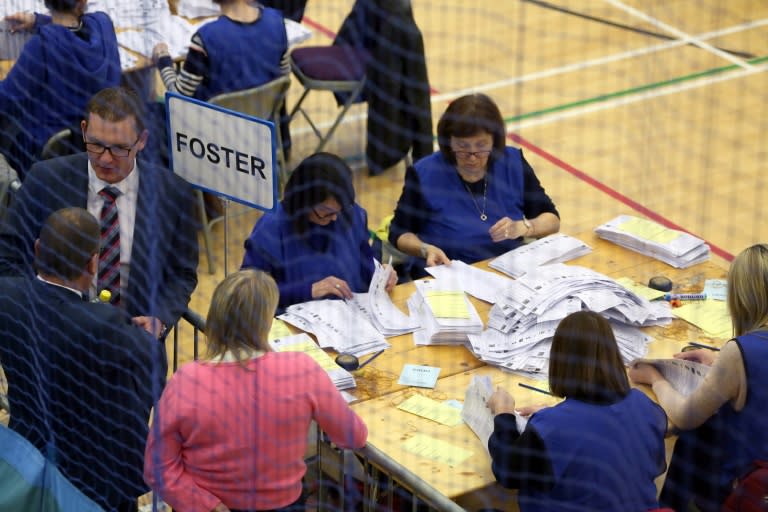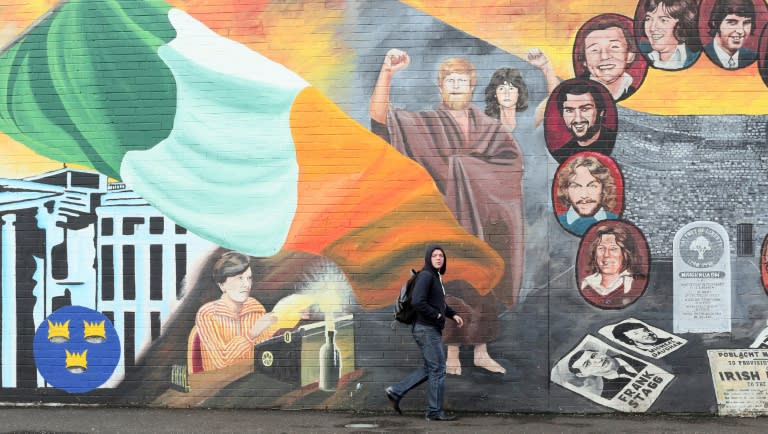Clock ticking for N.Ireland rivals after fractious vote
Northern Ireland's main political parties on Saturday were facing a three-week deadline to mend fences after snap elections aimed at sorting out the bad blood between them left them deadlocked. In a historic shake-up, unionist parties lost their absolute majority in Northern Ireland's legislature for the first time since the province's creation in 1921. And if the pro-British Democratic Unionist Party (DUP) and Sinn Fein, the Irish republican party, cannot agree to form a power-sharing executive -- a cornerstone of peace in Northern Ireland -- then governance of the British province could return to London. "The unionist majority at the assembly has been ended and the notion of a permanent or perpetual unionist majority has been demolished," said Sinn Fein president Gerry Adams, who called the result a "watershed". Commentators said both sides had a long way to go in a short space of time to sort out their differences. "It's a mess," said Jonathan Tonge, a politics professor and expert on Northern Ireland at the University of Liverpool. "It's probably been the most dramatic election result we've seen in modern times in Northern Ireland, but it doesn't make forming a government any easier at all," he told AFP. "The personalities as well as the politics are currently poisonous." The DUP won 28 seats in Northern Ireland's semi-autonomous 90-seat assembly in Thursday's election, while Sinn Fein garnered 27 seats. The Social Democratic and Labour Party (SDLP), a nationalist party, won 12 seats; the Ulster Unionist Party (UUP) won 10; the cross-community Alliance Party took eight; and others won five. The results left the DUP two seats short of the 30-seat threshold required to deploy on its own a so-called petition of concern veto, something the party has used to block gay marriage. - Standoff over inquiry - Tensions between the Catholic and socialist Sinn Fein and the Protestant and conservative DUP boiled over in January when Sinn Fein collapsed the government. They refused to work with DUP leader Arlene Foster as Northern Ireland's first minister over a bungled green energy programme she had introduced when she was economy minister. They wanted her to step aside pending an ongoing investigation into the scheme, which could end up leaving taxpayers liable for £490 million ($600 million, 570 million euros). The tensions were also exacerbated by Brexit, which the DUP backs but Sinn Fein opposes. In the June referendum Northern Ireland voted to stay in the EU but the result in Britain as a whole was for Brexit. Britain's exit from the European Union raises the spectre of a new hard border between the province, which is part of Britain, and the Republic of Ireland, which remains an EU member. Sinn Fein showed no signs Saturday of backing down on their demands over Foster. If the stand-off cannot be resolved within a three-week deadline, then the assembly could be suspended and governance of the province transferred to London. "Let us move forward with hope," Foster said after the count. "Hope that the common good will be able to prevail; hope that civility can return to our politics; hope that a functioning assembly can be restored." The election energised voters, with turnout reaching 64.8 percent -- the highest level since the first vote after Northern Ireland's 1998 peace deal, which ended the three decades of violence in which more than 3,500 people were killed. - 'Stunned' by setback - Tonge said that Foster's position was "unstable" but not "untenable", and that the DUP could not permit a situation where "Sinn Fein effectively chooses their leader". But Chris Donnelly, a Northern Ireland political analyst, said the nationalist surge had been motivated by a sense that Foster and her party were "not buying into the ethos of power-sharing". "Very clearly she is stunned, very clearly she sees, and her party sees it, as a setback," Donnelly told AFP. "The next three weeks are going to be too soon. The British government are more than likely going to seek to create an extended period in which negotiations can take place," he added. Michelle O'Neill, Sinn Fein's leader in Northern Ireland, said the results showed that "people know that action needed to be taken". "We now need to get down to the business of fixing what's wrong and delivering for all citizens."





